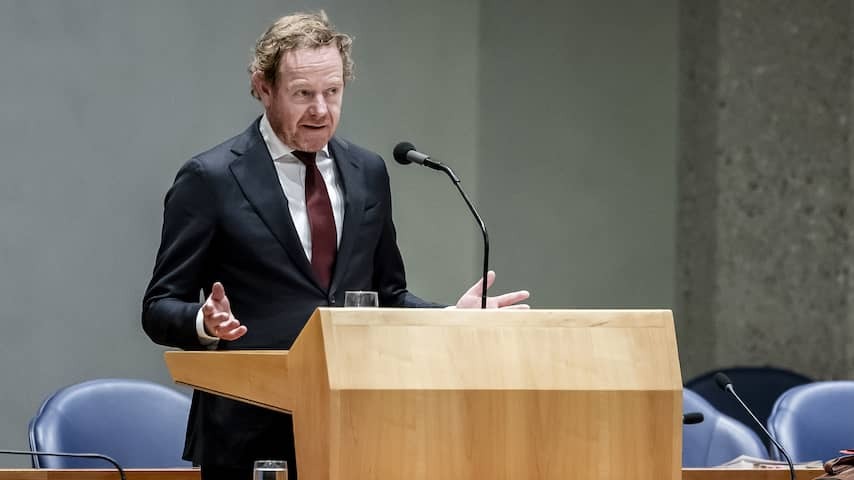
Outgoing Minister David van Weel (asylum and migration) could have given an Iraqi man a residence permit, the Council of State judges. Van Weel himself said that he did not have that authority and therefore left the man’s application.
The man from Iraq has applied for a so -called residence permit for harrowing cases. Someone is eligible for this if, according to the rules of the Immigration and Naturalization Service (IND), the person cannot get a regular residence permit.
The applicant must then be able to prove that there are serious personal problems that ensure that a stay in the Netherlands is necessary. Consider, for example, a sick family member who needs to be treated in the Netherlands or serious psychological problems.
Van Weel did not handle the application from the Iraqi man because as a minister he would no longer have authority to give someone a residence permit. The regulations were adjusted in 2019, so that the responsibility for giving residence permits in exceptional situations has shifted from ministers to the director of the IND.
But the Council of State (RVS) ruled on Wednesday that this so -called discretionary authority has never been adapted in the Aliens Act, but only in lower regulations. The responsible minister may therefore still decide on a residence permit in harrowing cases. Van Weel must now re -assess whether he will process the application from the Iraqi man.
Minister does not have to deal with the application
Van Weel is not the only one who refused to handle residence permits for special situations. Marjolein Faber, the former Minister of Asylum and Migration, said last year that she did not have the authority to stop the expulsion of twelve -year -old Mikael and his mother to Armenia.
The ruling of RVS does not mean that a minister must always process an application. Ministers may still decide to ignore an application. But the claim that they are not authorized is therefore incorrect.
Caretaker Minister David van Weel (Asylum and Migration) was Indeed Allowed to Grant A Residence Permit to An Iraqi Man, The Council of State Has Ruled. Van Weel Himself said that he did not have that authority and therefore Left the Man’s Application Untouched.
The man from Iraq has applied for a so-called residence permit for compelling reasons. Someone is eligible for this if they cannot obtain a regular residence permit accordance to the rules of the immigration and naturalization service (IND).
The applicant must be able to demonstrate that there are serious personal problems that make a stay in the Netherlands Necessary. For Example, A Sick Family Member Who Needs to Be Treated In The Netherlands Or Serious Mental Health Problems.
Van Weel Did not Process the Iraqi Man’s Application Becoause, AS Minister, He would No Longer Have the Authority to Grant Someone A Residence Permit. In 2019, The Regulations Were Amended, Shifting the Responsibility for Granting Residence Permits in Exceptional Sitations from Ministers to the Director of the Ind.
But the Council of State (RVS) Ruled on Wednesday That this so-called discretionary power has never leg amended in the aliens act, but only in Lower Regulations. The Responsible Minister May Therefore Still Decide on a residence permit in compelling cases. Van Weel Must Now Reasess WHETER HE Will Process the Iraqi Man’s Application.
Minister does not have to process application
Van Weel is not the only one who refused to process residence permits for special situations. Marjolein Faber, the Former Minister of Asylum and Migration, Said Last year that she did not have the authority to prevent the deportation of 12-year-old Mikael and his mother to Armenia.
Incidentally, The RVS’s Ruling Does Not Mean That A Minister Must Always Process An Application. Ministers May Still Decide to Ignore An Application. But the claim that they are not authorized to do so is incorrect.